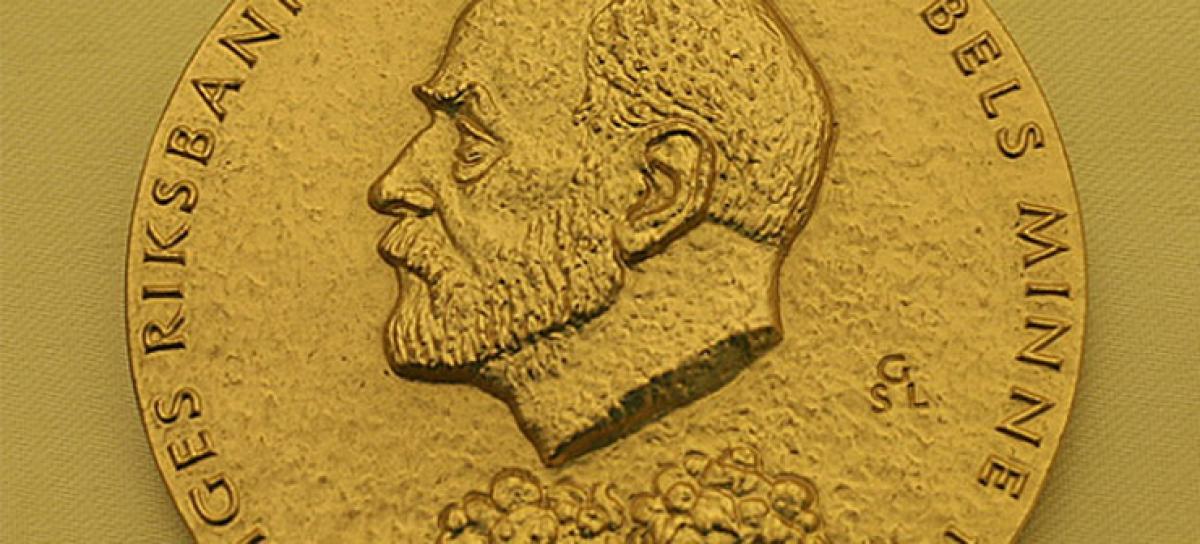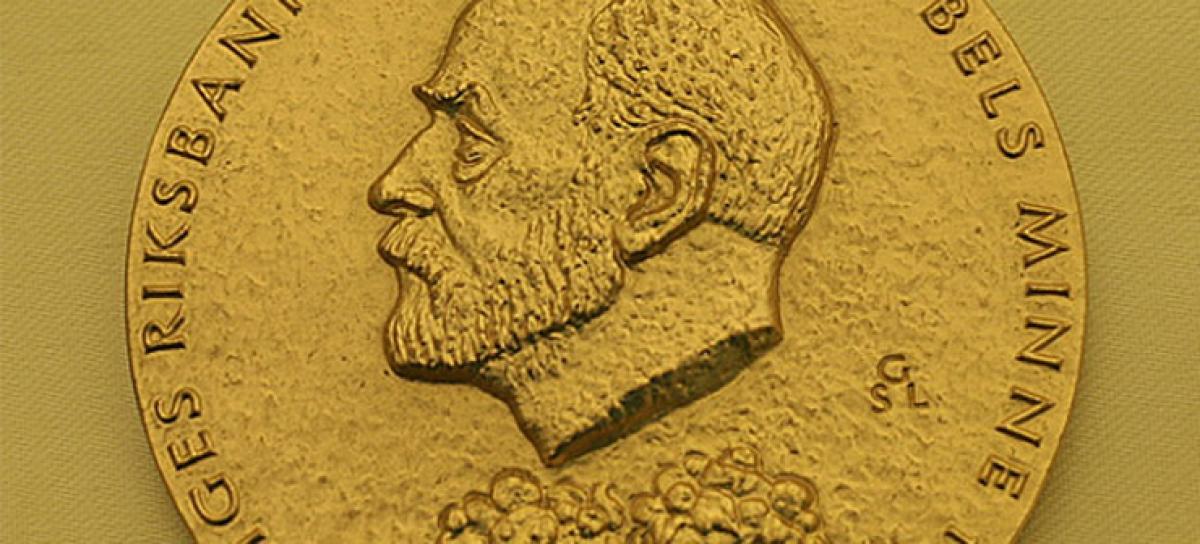Live
- Govt plans to establish offshore Johns Hopkins University Campus in India
- Goa Aces clinch Indian Racing League title
- Study finds how hormone therapy can reshape the skeleton
- High-street fashion players looking at India for manufacturing: Report
- Shreyas Iyer to lead Mumbai as Prithvi Shaw returns for Syed Mushtaq Ali Trophy
- 'Failed to resolve crisis': NPP withdraws support from BJP govt in Manipur
- Chennai: Actress Kasturi Remanded in Custody Until 29th of This Month
- Aaqib Javed likely to become Pakistan's new white-ball head coach
- BJP panel to draft poll charge sheet against AAP govt in Delhi
- Allu Arjun Thanks Fans in Patna, Teases 'Pushpa 2' Release
Just In

x
Highlights
The beginning of October means Nobel Prize time, when committees in Stockholm and Oslo announce the winners of what many consider the most prestigious awards in the world.
The beginning of October means Nobel Prize time, when committees in Stockholm and Oslo announce the winners of what many consider the most prestigious awards in the world.

This year's Nobel season kicks off Monday with the medicine award being announced for the 106th time.
Daily announcements will follow during the week with physics Tuesday, chemistry Wednesday and probably, though the date has not been confirmed, literature on Thursday. The 2015 Nobel Peace Prize will be announced on Friday and, finally, the economics award on October 12.
Each prize is worth 8 million Swedish kronor ($960,000) and will be handed out with a diploma and gold medal on December 10.
Here are five other things to know about the coveted prizes:
Who created the Nobel Prizes?
The prizes in medicine, physics, chemistry, literature and peace were established by the will of Alfred Nobel, a wealthy Swedish industrialist and the inventor of dynamite. The first awards were handed out in 1901, five years after Nobel's death.
The economics award - officially known as the Bank of Sweden Prize in Economic Sciences in Memory of Alfred Nobel - wasn't created by Nobel, but by Sweden's central bank in 1968.
Though it's handed out along with the other prizes and the criteria for selecting winners are the same, it's not a Nobel Prize in the same sense.
Secrecy
The Nobel statutes prohibit the judges from discussing their deliberations for 50 years. So it's probably going to be a while before we know for sure how judges made their picks for 2015 and who was on their short lists.
The judges try hard to avoid dropping hints about the winners before the announcements, but sometimes word gets out. Last year, there was a sudden surge in betting on literature winner Patrick Modiano in the days leading up to the announcement.
The peace prize committee has accused its former secretary of breaching the code of silence in a new book, which describes some of the discussions leading up to the awards during his 25-year tenure.
Who can nominate?
Thousands of people around the world are eligible to submit nominations for the Nobel Prizes. They include university professors, lawmakers, previous Nobel laureates and the committee members themselves.
Though the nominations are kept secret for 50 years, those who submit them sometimes announce their suggestions publicly, particularly for the Nobel Peace Prize.
That's how we know that German Chancellor Angela Merkel, Pope Francis, former NSA contractor Edward Snowden and imprisoned Saudi blogger Raif Badawi are among this year's 273 nominees.
The Norwegian Connection
The Nobel Peace Prize is presented in Norway while the other awards are handed out in Sweden. That's how Alfred Nobel wanted it.
His exact reasons are unclear but during his lifetime Sweden and Norway were joined in a union, which was dissolved in 1905.
Sometimes relations have been tense between the Nobel Foundation in Stockholm, which manages the prize money, and the fiercely independent peace prize committee in Oslo.
What does it take to win a Nobel?
Patience, for one. Scientists often have to wait decades to have their work recognized by the Nobel judges, who want to make sure that any breakthrough withstands the test of time.
That's a departure from Nobel's will, which states that the awards should endow "those who, during the preceding year, shall have conferred the greatest benefit to mankind."
The peace prize committee is the only one that regularly rewards achievements made in the previous year. According to Nobel's wishes, that prize should go to "the person who shall have done the most or the best work for fraternity between nations, for the abolition or reduction of standing armies and for the holding and promotion of peace congresses."
This version clarifies that the union between Sweden and Norway was dissolved in 1905.

Next Story
More Stories
ADVERTISEMENT
© 2024 Hyderabad Media House Limited/The Hans India. All rights reserved. Powered by hocalwire.com







